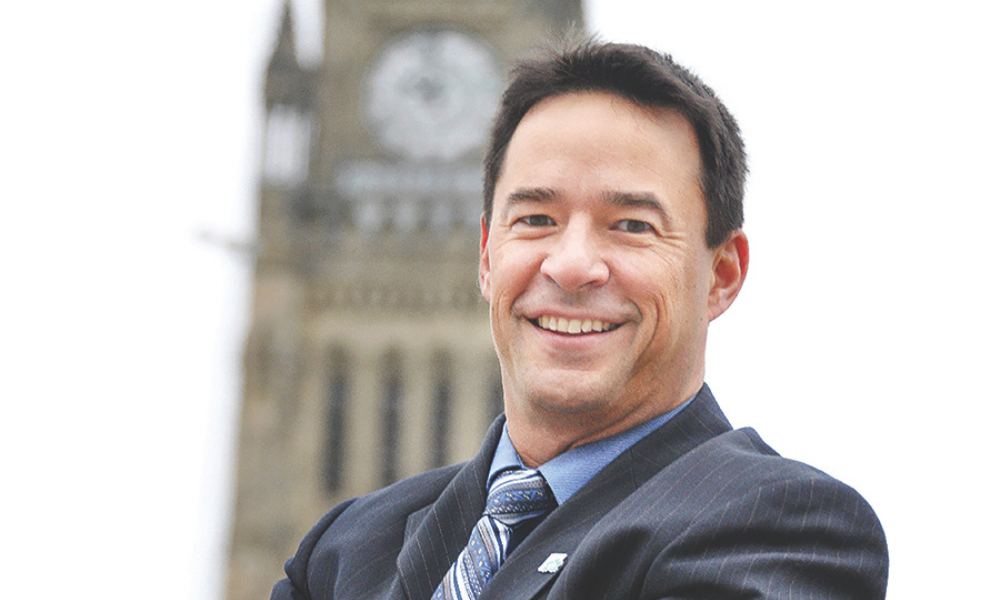Construction outlook could worsen significantly if trade tussle begins, says CEO

It’s no secret: Canada’s construction sector, already grappling with high interest rates and homebuilding costs, would face an even bigger crisis if US president Donald Trump’s threatened tariffs come into effect in March.
The Canadian government’s vow to impose dollar-for-dollar targeted countermeasures on a range of American goods could see the cost of cross-border trade skyrocket and add a further hurdle for beleaguered Canadian homebuilders to overcome.
But there are steps federal authorities north of the border could take to mitigate that risk – starting with immediate moves to slash taxes on building, according to Canadian Home Builders’ Association (CHBA) chief executive officer Kevin Lee (pictured top).
He told Canadian Mortgage Professional that the move should be an urgent priority with the threat of a trade war looming.
“We do expect construction costs to go up [if tariffs arrive],” Lee said. “And there are ways that the government can address that immediately. One is with respect to removing the GST on new construction, which is something that the [federal Conservatives] have already talked about if they’re elected, for homes under $1 million.
“The current government could do the same thing to really offset some of those costs – and frankly, it shouldn’t be there in the first place.”
Municipal fees stirring developer disquiet
Development taxes at local level across many municipalities have also drawn the ire of homebuilders as a big impediment to construction. Lee said those have gotten “out of hand” and require reform if building is expected to ramp up in the years ahead.
“In the Greater Toronto Area [GTA} and Lower Mainland in British Columbia, we’re looking at development taxes municipally of $200,000 per unit – which is just insane,” he said. “So there’s obviously an opportunity to reduce those, and there are other means to replace those revenues for municipalities that would make a lot more sense.
Rents in Toronto have seen a 7.1% drop in 2024, thanks to an influx of condo inventory. While this offers some relief, CMHC's Kevin Hughes cautions that rental affordability challenges persist.https://t.co/YemoyMbVQt
— Canadian Mortgage Professional Magazine (@CMPmagazine) February 13, 2025
“But bringing those down could more than make up the difference for any increase in construction costs. Those things should happen anyway – but they’re doubly important if we end up with tariffs.”
Canada Mortgage and Housing Corporation (CMHC) is expecting housing starts to slow in the year ahead as tariff threats and weaker demand in the condo market weigh down homebuilding.
Builder confidence continues to take a hit as tariffs loom
CHBA’s latest housing market index, meanwhile, showed builder sentiment is at a record low regarding multifamily housing and just a half-point above its lowest-ever level for single family.
There was an uptick in purpose-built rental accommodation over the past year – but the index still “really points to a pretty dramatic slowing of the market coming up,” Lee said. “We do expect purpose-built rental to still be a pretty major part of the market this year.
“But with the market slowing down, just with immigration and other factors – a little bit more rental coming available through vacancies – we think PBR will slow down a little bit too.”
Nineteen per cent (19%) of builders surveyed by the CHBA said the high cost of construction would be their business’s foremost challenge in the year ahead, with municipal government taxes and the length of time it takes to have projects approved contributing to those soaring costs.
Unsurprisingly, the looming prospect of tariffs is also weighing against buyer sentiment and could also be hampering buyer demand in certain parts of Canada, according to the index.
A worst-case scenario of the bottom falling out of the market is unlikely to transpire, Lee said, due to a few factors including the prospect of further interest rate cuts by the Bank of Canada in the months ahead and new mortgage rules put in place by the federal government.
“We’re certainly hoping that interest rates continue to come down. We now have 30-year amortizations for insured mortgages on new construction, so that should help as well,” Lee said. “So it could certainly be worse. But what we don’t see is an increase in housing starts which is, of course, what we actually need to address our housing supply moving forward.”
Make sure to get all the latest news to your inbox on Canada’s mortgage and housing markets by signing up for our free daily newsletter here.


